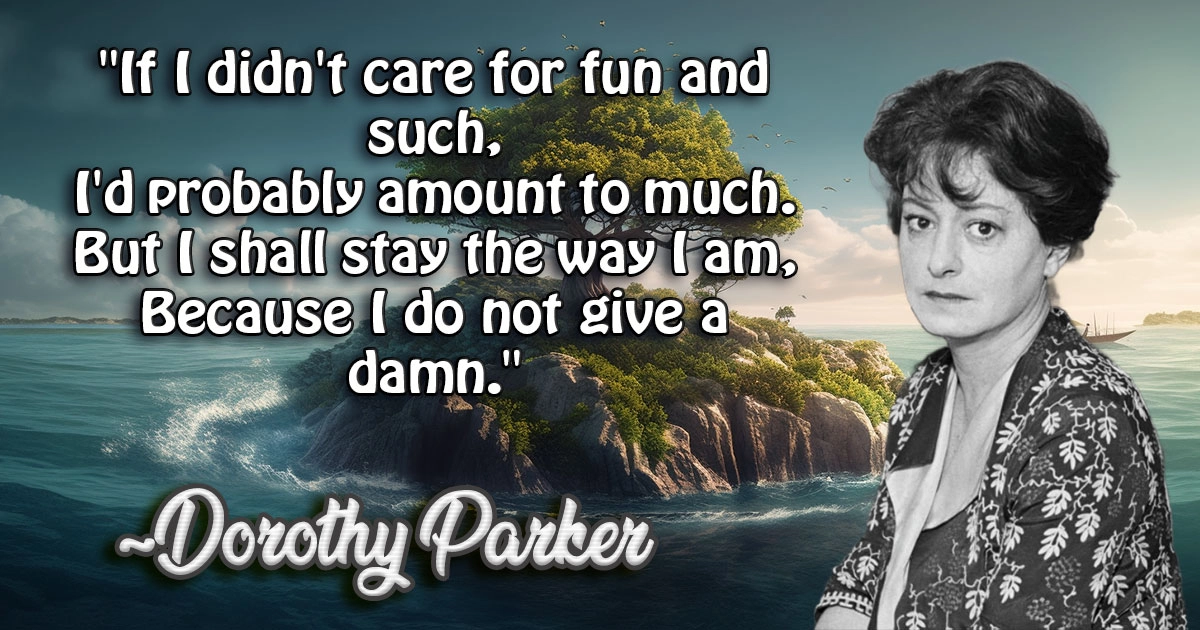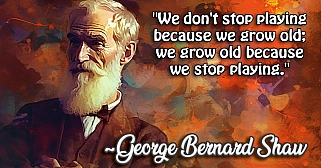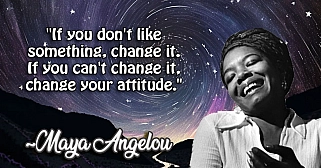Dorothy Parker: The Wit and Wisdom of a Literary Icon

Dorothy Parker
Early Life and Influences
Dorothy Parker sat at her writing desk, her fingers hovering over the keys of her typewriter. The sun was setting over Manhattan, casting long shadows across her cluttered apartment. Books were stacked haphazardly on every available surface, and empty coffee cups bore witness to her long hours of creative endeavor. Parker, known for her sharp wit and acerbic humor, was a fixture in the literary circles of New York City.

Born in 1893 in Long Branch, New Jersey, Dorothy Parker was a woman ahead of her time. She was raised in an upper-middle-class household, but her life was far from idyllic. Her mother died when she was just a child, and her father, a businessman, was distant and often absent. Despite these hardships, Parker developed a love for literature and writing at a young age. She devoured books by the likes of Mark Twain and Oscar Wilde, and her early attempts at poetry hinted at the brilliance that would later define her career.
The Move to New York City
Parker moved to New York City in her early twenties, determined to make a name for herself. She quickly found work as a writer and critic for various magazines, including Vanity Fair and The New Yorker. It was at Vanity Fair that she met fellow writers Robert Benchley and Robert E. Sherwood, with whom she would form the core of the legendary Algonquin Round Table. This informal group of writers, critics, and actors gathered regularly at the Algonquin Hotel to exchange ideas, share gossip, and engage in spirited debates.
The Algonquin Round Table
The Algonquin Round Table was the epicenter of New York's literary scene in the 1920s, and Parker was its undisputed queen. Her razor-sharp wit and biting humor made her the darling of the literary elite. She was known for her clever quips and devastating put-downs, which were often delivered with a wry smile and a cigarette dangling from her lips. Parker's talent for wordplay was legendary, and her pithy remarks were often quoted in newspapers and magazines.
Personal Struggles and Turmoil
Despite her success, Parker's personal life was marked by turmoil and tragedy. She married Edwin Pond Parker II, a stockbroker, in 1917, but the marriage was troubled from the start. Parker's husband struggled with alcoholism and post-traumatic stress disorder following his service in World War I, and their relationship was fraught with tension and conflict. The couple separated and reconciled several times before finally divorcing in 1928.
Parker's romantic entanglements were as complex and turbulent as her marriage. She had numerous affairs with both men and women, and her love life was a frequent subject of gossip among her friends and colleagues. Despite her many relationships, Parker struggled with feelings of loneliness and depression. Her personal struggles often found their way into her writing, and her poems and stories are filled with themes of heartbreak, betrayal, and despair.
Success in Hollywood
In addition to her work as a poet and critic, Parker was also a successful screenwriter. She moved to Hollywood in the early 1930s, where she worked on screenplays for major studios. Parker's sharp wit and keen sense of humor made her a sought-after collaborator, and she contributed to several successful films, including the original 1937 version of "A Star is Born." Despite her success in Hollywood, Parker was often frustrated by the constraints of the studio system and the demands of producers and directors.
Political Activism
Parker's time in Hollywood was also marked by political activism. She was a staunch supporter of civil rights and social justice, and she used her platform to speak out against injustice and inequality. Parker was an outspoken critic of fascism and anti-Semitism, and she was a vocal advocate for the rights of workers and the poor. Her activism often put her at odds with the conservative establishment in Hollywood, and she was blacklisted during the McCarthy era for her leftist views.
Continued Writing and Legacy
Despite the challenges she faced, Parker continued to write and publish throughout her life. Her work was celebrated for its wit, intelligence, and emotional depth, and she remains one of the most influential writers of the 20th century. Parker's poems, short stories, and essays are still widely read and admired today, and her legacy as a pioneering woman in literature endures.
Later Years and Health Issues
In her later years, Parker struggled with health issues and financial difficulties. She continued to write, but her output slowed as she battled alcoholism and depression. Parker's friends and colleagues often worried about her well-being, but she remained fiercely independent and determined to live life on her own terms. Despite her struggles, Parker's wit and humor never dimmed, and she continued to delight and entertain those around her until the end of her life.
Final Days and Enduring Influence
Dorothy Parker died in 1967 at the age of 73, but her legacy lives on. Her work continues to be celebrated for its wit, wisdom, and emotional depth, and she remains a beloved figure in the literary world. Parker's life was a testament to the power of words and the enduring strength of the human spirit. Despite the many challenges she faced, she never lost her love for writing or her passion for life.
As the sun set over Manhattan, Dorothy Parker's typewriter fell silent. The pages she had filled with her thoughts and stories lay scattered across her desk, a testament to a life well-lived and a career that had touched the hearts and minds of countless readers. Parker's voice, with its sharp wit and keen insight, continues to resonate with readers today, reminding us of the enduring power of words and the indomitable spirit of one of America's greatest writers.
A Life of Triumph and Tragedy
In the end, Dorothy Parker's life was a complex tapestry of triumph and tragedy, humor and heartbreak. She was a woman of immense talent and fierce independence, who blazed a trail for future generations of writers. Her legacy is one of courage, creativity, and unyielding determination. As we reflect on her life and work, we are reminded of the enduring power of wit, wisdom, and the written word.


